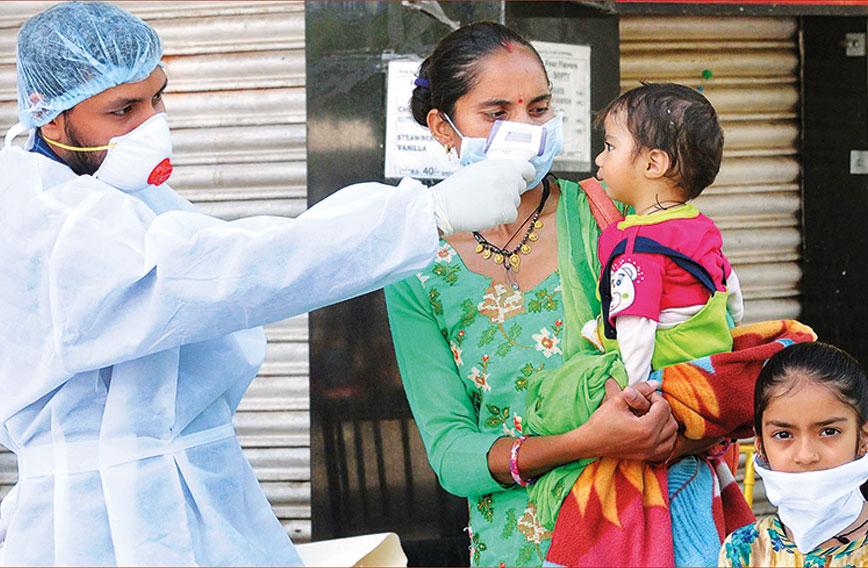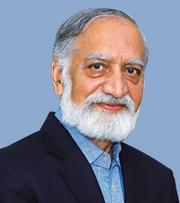

KIRAN KARNIK
DESPITE the many divergences on issues related to the pandemic, there is one on which there is a consensus: the new after-Covid (AC) world will be rather different from the before-Covid (BC) days. Entertainment and partying will be mainly in homes; pubbing and dining out in restaurants will be rare. Few will go to cinema halls and theatres and popular sports events will take place amidst empty stands, without in-stadia spectators. Malls and shops will be bereft of crowds. Mass public transport will carry only a few at a time, and individual transportation will see a boom.
Work is already seeing a transformation, with work-from-home (WFH) and e-meetings (audio and video) now being part of the routine. This will only increase as organizations compute the possible saving on real estate (space) and overheads as a result of having fewer employees going to office. Increasing use of e-meetings, combined with fears of contracting infection during travel, will mean that out-station work trips will see a big decrease. Organizations will welcome this too, as another cost-saving measure.
Education, at all levels, will make much greater use of online courses and tools like virtual laboratories. Face to face interaction — both student-teacher and amongst students — will be limited. Coaching classes and training too will move to greater use of online methods. It is yet early to assess the impact of this in terms of learning outcomes and, given the varying extent of net reliability and speed in various circumstances, on equity and inclusion in education. Yet, there is general agreement that online will be a major means of delivery of education.
A larger, more intrusive role for government is likely, with surveillance and loss of privacy being accepted as a price to pay for ensuring good health. Thus, continuous tracking through location apps, contact mapping, and real-time monitoring of health parameters through one’s mobile or a wearable device can be foreseen as the scenario AC. More powerful and more centralized governments are a likely outcome, around the world.
This general view about leisure, work, education and governance in the AC era is a widely held one. As of now, it does seem the most likely scenario. Yet, technology and human nature may well up-end this. WFH is fine in the short term, but is it sustainable, given small homes with many occupants, endless distractions and interruptions — both physical and in e-connectivity? Will productivity suffer further without the unplanned, informal interaction so common in an office? Will learning among students be affected by the lack of peer contact and the human touch of a teacher’s actual presence?
Will people just get used to the ever-present danger of Covid, as they are of TB or dengue or a host of other health threats? Will this make them rebel against tracking and surveillance? Will the social animal in humans overpower mental fears of the virus? If so, will we again see long queues at theatres, restaurants that are packed, and jostling crowds at airports and railway stations?
Across the world, the general view is that the State will be more dominant in our lives. Greater numbers of people now seem to support a bigger role for government in all aspects of our life. In this century, first privacy and many personal freedoms were traded for greater security (against terrorism); now, it seems that they will be further traded for health. Yet, who knows, here too there may be a reversal as people decide that they want a larger space for themselves, even if it means some danger of death (by bullet or by virus).
In this “black swan” scenario, it is not just behavioural factors that will play a role, but also technology. For example, a simple non-intrusive test (based on, say, perspiration or even breath) for Covid symptoms — like the infra-red thermometer, but far more reliable — may give people the necessary reassurance to enter a crowded theatre or station. Or, we may all change our couture and begin to wear some simple, light and inexpensive version of today’s PPE (personal protective equipment) used by medical and other frontline workers. This will enable us to go anywhere and mix with anyone without feeling endangered. Such tech innovations may help regain the social lives we had, as also revert to aggregation-based work and education environments (offices and classrooms). Societal preferences will determine whether this is a regressive step or a return to happy times.
The bigger tech change, though, may be something more fundamental: the way the country is governed. WFH has demonstrated quite conclusively that a great deal (if not all) work done in offices — i.e., excluding manufacturing, agriculture, mining and the like — can be done remotely, without assembling people at one location. The government has functioned well (in fact, in over-drive) through e-meetings and e-connectivity. The prime minister, other ministers and officials have worked amongst themselves and with others mostly without assembling together. This has brought home more powerfully than ever the feasibility of a dispersed mode of functioning.
Simultaneously, the health challenges have indicated the need to decentralize government functions. Already, it is clear that decisions have to be based on a district-level assessment, and it is now obvious that even a district is too large an entity. Cities are in a vastly different position than rural areas in the same district, and within a city there may be safe and containment zones. This highlights the desirability of decentralization.
Technology enables dispersal and decentralization of work. This, accompanied by a conscious devolution of power to not just states, but to the third level of government (as defined in the Constitution — panchayats and municipal bodies) would revolutionize governance. Instead of the expected big, all-powerful, centralized government that most expect, will this black swan scenario be realized? This may well be the biggest fall-out of Covid and a feature of the AC world.
Kiran Karnik is an independent strategy and public policy analyst. His recent books include eVolution: Decoding India’s Disruptive Tech Story (2018) and Crooked Minds: Creating an Innovative Society (2016).
Comments
Currently there are no Comments. Be first to write a comment!



